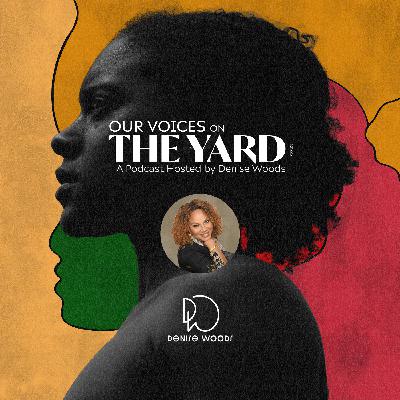Exceptional, Black and Female in a Classical Space with Lisa Whitfield
Description
Lisa Whitfield, a viola player that went to Julliard in the nineties was one of the first students I met who was not in the drama division, and we bonded on so many levels because of our insecurities as artists, as women, as black women in that space. She was also the first person that I felt comfortable enough to talk to, not as a faculty member, but as a sister. It could be because she was a graduate student and she was older than the students I taught, but I really got close to this woman and you'll see that. I get emotional because she is so vulnerable in this interview and she brought that out in me. I think you're gonna get another slice of what it is to be black, to be female, to be exceptional in a classical space. She’ll talk about institutional racism. she’ll talk about sexism. she’ll talk about classism, she’ll talk about not having the support of her family, which was unusual because everyone has the support of their family, especially when they get into Juilliard, but not for Lisa. This woman had to fight for everything and she not only fought, but she landed on her feet.
What You Will Hear
- How the viola found Lisa
- Getting to Juilliard
- Coming into her own as a musician and supportive teachers
- Lisa’s parents and imposter syndrome
- Being invited back to Juilliard as faculty
- Racism and how Lisa got around its consistency
- Challenges, long-lasting trauma from racist events, and finding her tribe
- Becoming a teaching fellow and the Music Advancement Program
- Settlement Schools and its impact on Lisa’s trajectory
- Juilliard Pre-College
- Teaching at Juilliard
Quotes
“It was really important to me to make sure my family was proud of me, to make sure that felt like I carried the burden of dashed expectations.”
“Violists can be married to each other, violinists not so much, but violists can actually be married to each other. “
“Juilliard was never on my radar. It was never something I expected, It was never, it was never something I thought would be part of my story. “
“Everybody knows the name (Juilliard) throughout the entire world, so it's definitely hard for me because I'm not a person who likes to brag like that.”
“I was used to being one of the only women of color, I was used to that that wasn't a problem. What I was not used to was being doubted. I was not used to somebody looking at me and doubting that I could be the thing I presented myself as….I played a string instrument and I played a string instrument well enough to get me into Juilliard. And that did not compute with a lot of people.”
“It was very difficult. I had to work several jobs to support myself because my parents cut me off when they found out I was going to Juilliard.”
“I was a black girl from a working class background who did not have financial access to the things that they did and I felt very isolated and alone. It was difficult.”
“At Juilliard I was the black girl with no money. At Oberlin I was the black girl everybody assumed had money, and that was hilarious because my financial situation did not change between those two things but the perception of me changed.”
Mentioned
Karen Tuttle
Robin Willams
Joe Webster
Audra McDonald
Chris McKinney
Edward Lawrence
Lori Carter (Associate President of Juilliard)
Mary Anthony Cox
Music Advancement Program
Music Settlement School





